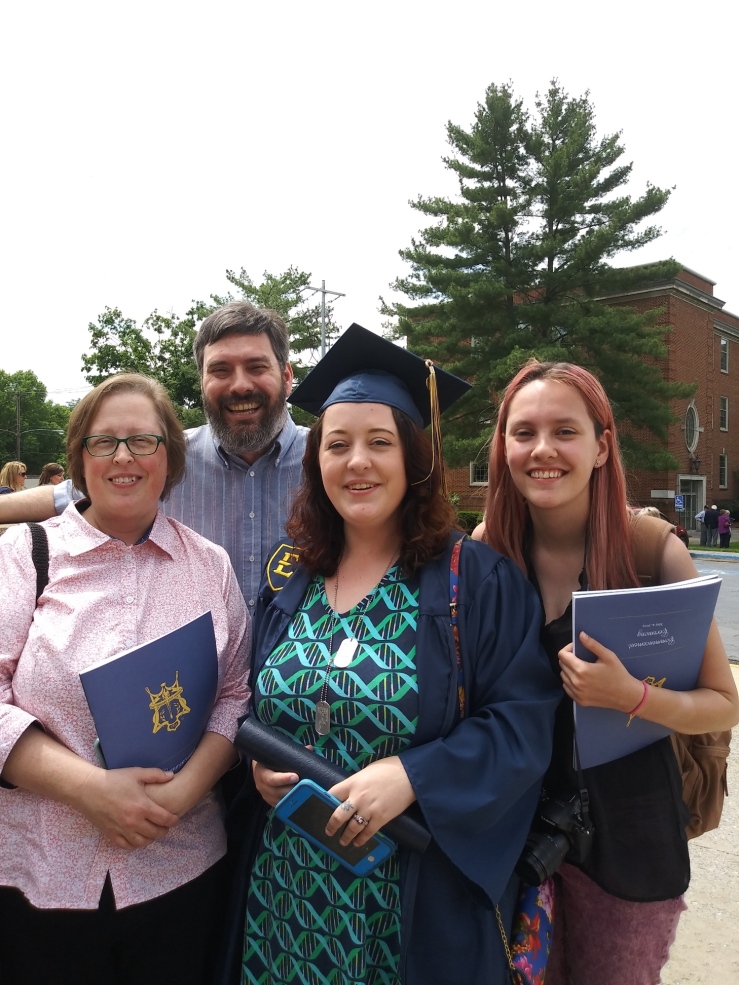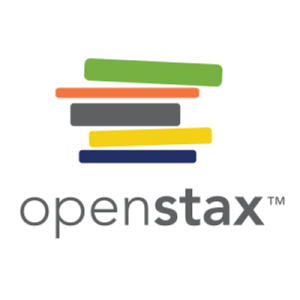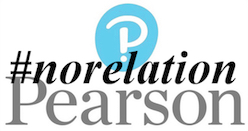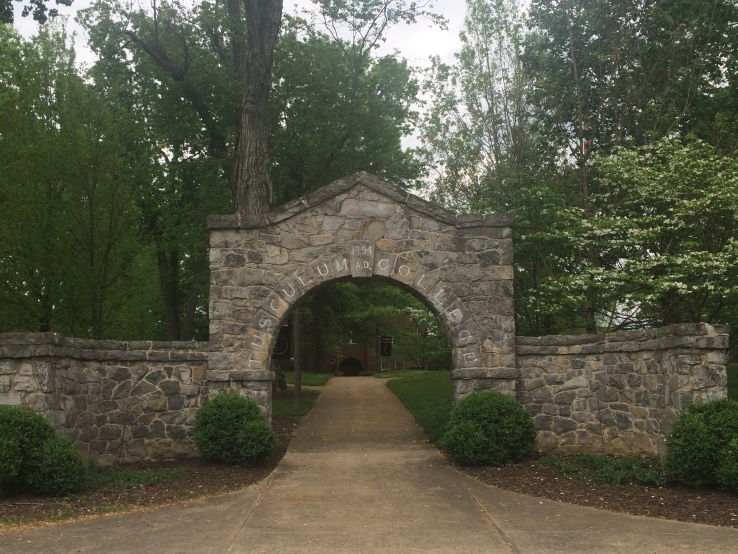Presented to the freshmen of Tusculum University Class of 2023, on 17 August 2019.
The promise of the meeting this morning is about being successful as first-year college students. I don’t want to take away from this theme. You need to understand why you’re here, what binds you together as students, and how your purpose in being here is the first step in your success.
The charge I originally took for this talk was the topic “Why College Is Important,” and frankly, I don’t want to take away from this theme either. I need you to know that the time you spend in this space isn’t just important for you; it’s important for your family, it’s important for your community; it’s important for our nation and our world.
But I want to focus in on these themes a little bit. I want to talk about why higher education is important, why your success is important, and why it’s important in this place.

Many of you are not from around here originally. I wasn’t from around here originally; I grew up in Hilliard, Florida, so far north in Florida it is more useful for me to tell people I’m from South Georgia, and before I moved to this region I worked in what we call “Southern Appalachia”, doing research at the University of Alabama-Birmingham, and later serving on the faculty of Shorter University in Rome, Georgia. Those places are of the Appalachian Mountains. But they’re not where you live now.
I moved to Central Appalachia in 2011, to take a job at a place that doesn’t exist anymore in a region I had heard of but didn’t understand nearly as well as I should. I made a very deliberate decision when I took the job that I work on building connections with the people of the region, especially people involved in education. I expected I would fall in love with the countryside, the mountains, the roads.
 I did not expect to fall in love with the people as forcefully as I did.
I did not expect to fall in love with the people as forcefully as I did.

(There are at least two freshmen in this room in those pictures. I’m incredibly glad they’re here. My own goal for myself, over the next few years, is to get to know these places well enough that there are a lot more than two freshmen that I’m aware of and have pictures of from before they showed up here.)
The people of this region, ultimately, are why I stayed, first in Bristol to our north, then in Cookeville, Tennessee to our west, and then here.
If I can share one piece of wisdom, both for those of you who have stayed in one small community for most of your life and for those of you who have come here from outside of our place in the world, and have you remember nothing else, it’s this: get to know these people you are in school with. They have a host of stories to tell you, and they are so wonderful in so many ways. Get to know the stories and the lives of this place.

There is a host of data from the Appalachian Regional Commission, which is the federal/local partnership that advocates for the region, that will tell you how much distress there is in this part of the world, and how much need there is for economic development. That’s not entirely wrong. One of the core reasons for being a college student in this time and in this place is to help provide for the development of the region. Your desire to learn basic sciences and health sciences, your desire to teach, your desire for entrepreneurship – all of your education to this end is not just something you’re doing for yourself, and I hope you know that up-front. You are going to be contributors to the communities where you land, and much of that contribution is going to be economic. You’re going to draw people to invest money in the region, you’re going to make money and spend money, you’re going to help other businesses be successful and you’re going to help other people make money and spend money.
We preach the parent’s lament a lot: we want you to be better off than we are. And education exists, in the public’s eyes, for economic growth. We can’t dismiss that reality.
But economic growth is not the only thing that’s important. And, bluntly, to put that much hope into economic growth downplays the character of the people of the region. It’s a short path from talk about the strengthening economies to talking about the mythology of the desperate conditions of Appalachia, to the construction of the narrative of people that need saving.
Nobody ‘round here needs saving. Have you traveled some of the roads in Southwest Virginia and Western North Carolina? Have you seen some of the architecture, the artwork?


Have you heard the music and the culture? These people were creating greatness long before I really understood this place existed, and they’ll keep creating greatness long after I’m gone.

And the economics of this place isn’t the economics of South Florida or of the Philadelphia/New York corridor. It would be NICE to have a lot of the money running around, don’t get me wrong. But you’ll find that a lot of money isn’t necessary to live well here. And money is not something that’s valued by several communities here; other things come to the fore, like family, community, country, faith.
In the context of THOSE values, and in the context of things that money can’t buy, why do we need education?
Well, you chose to come to Tusculum, for all kinds of reasons – whether that was scholarship support or athletics or just because the place was convenient for one reason or another. And it’s important for you to know what this place values.
One of the things that I do is advise pre-professional students, mostly students pursuing disciplines like pharmacy, physician’s assistant, and allied health disciplines like dentistry and, yes, optometry. And one of the things that I ask those students to do before applying to a school to study that health profession there is have a look at the school’s mission statement and other things that communicate what that school values. It’s an important way to know that when you’re interviewing to join that school’s programs, what you care about lines up with what they care about.
And you came to Tusculum. How many of you know Tusculum’s mission statement?
Well, let’s have a look.

Listen to the words used. A JUDEO-CHRISTIAN environment – we have a very distinct faith, but we do not privilege the Christian experience over the experience of other people who recognize Abraham as one of the founders of religious faith. CIVIC arts – we care about how you engage with the public as an informed citizen. LIBERAL arts – that’s not a political viewpoint, but it means the same as COMPREHENSIVE in this case. We don’t just care about you learning the stuff in your particular program, the stuff that’s your major – we care that you partake in all the ways of knowing that have made up the human experience. MEDICAL arts – we care about people learning the best science, technology, and human engagement that can help people heal in the best way possible.
CAREER preparation – we want you to have a job, but not just to make money in the short term, but to satisfy you for life. PERSONAL development – we care about who you are as a person, and we want you to be the best person you can be.
Oh, the one other way you tell what a place values? Listen for the words they repeat.

Tusculum uses the word CIVIC every place they can. We care about your CITIZENSHIP. We care about your place as a member of this society, and we care that you contribute to that society in the most productive, positive way possible.
So many of the things you learn as a student here are to help you be the best citizen possible. You need to see other examples of communication and expression, in speech and English classes, so that you can be the best communicator you can be, so what you care about can be expressed to those around you. You need to be informed as completely as possible, both about what’s happened in the past – your history – and about the knowledge that is building your future – our science. You need the best background on your faith you can get, so you can not merely speak the language of faith to those around you, but you can be encouragement to others to live that faith out better. And you need the arts, to appreciate the creativity of others in this place and express your own creativity on your terms. Encouraging creativity in others and in yourself is part of your best citizenship, too.
All of you need to bring your best selves to this process of education, and to take the education itself as seriously as possible, no matter what place you’re from, no matter what place you’re going. The values that Tusculum believes in are important no matter where you live.
But I hope you see that there’s something distinctly Appalachian about them – the idea that there are things that are more important than economic output, than workforce development, then even personal fulfillment. What we bring as citizens to our whole community matters. How we engage with one another, how we make everybody’s quality of life better, and how we make one another as positively informed as possible.
When Tusculum is at its best, we are both bringing in the most promising students from this region and the most promising we can find from far afield. And we’re making sure those students are leaving as the best citizens they can possibly be, for now and for decades to come.
And we are persuading you that there is a place for you here, among these mountains – in much the same way that I was persuaded, not even a decade ago, that there is a place here for me.
There are two other things I can promise you. Obviously the choice wisdom at this stage of this kind of a talk is to pay attention to your professors and to heed their wisdom. And look, you should. For one thing, we do have egos, and they need to be fed. My ego is raging. Running my mouth in front of y’all is a thrill. I’m not gonna lie about that.
But we also know a lot of the territory you’re dealing with in these next months and years, and we’re not gonna lie about that either. And it’s not just the academic stuff – it’s the life stuff too. Some of us were undergrads a lot longer ago than others, but we all remember it. We all remember the prof who gave us our first F on an exam. (Roger Lautzenheiser, Calculus I.) We all remember the prof who opened his office to us and gave us an hour when we expected five minutes. (Roger Lautzenheiser, Calculus I.)

We all remember the moments of crushing heartbreak and the moments we came to grips for the first time with depression. If we have never come out as LGBTQ, we remember being in the room with the person who came out and the affirmation they needed.
So know that we as profs have been through a lot of this. Talk to us.
But also know that it really doesn’t matter how good we are at what we do, in terms of defining Tusculum’s quality and Tusculum’s greatness. The dirty little secret is that people with PhD’s in physics who can teach physics and chemistry are a bit of a dime a dozen. If I left Tusculum tomorrow, Tusculum could find somebody to take this job. And they could find someone pretty quick. I will obviously do my best for you, but it’s not because I feel like my position is all that sacred.
The thing that makes Tusculum famous, and the thing that Tusculum will be known for in the years, the decades to come?


It’s sitting in front of me right now. Not one thing. 400 of you.
How you learn from us is meaningful. But how you learn from one another is what stays with you. You’re not at your best here because you need to show respect to that PhD. You’re at your best here for the people sitting next to you, because of your responsibility to make THEIR time here as important and as meaningful as it can be. You’re at your best here because when you leave here, you need to have the education and the relationships and the capacity to live together that the world around you needs to see lived out.
The mission you just heard there is for you to take up and hold up. You need to prepare for a life after this place. You need to take this space to develop yourself mentally, emotionally, spiritually. You need to prepare yourself to be a citizen of these mountains, this nation, and this world.
This is your task. You take it from here.

The full slide deck was prepared with Google Slides and is available for your review, with credits for all images.







 One of the things I’ve spent time working on this year is a full game plan for how I do scholarship at this late stage of my career. And increasingly I feel like an important part of doing that scholarship is promoting the sharing of knowledge in ways that the likes of Pearson Higher Ed and Cengage Learning can’t understand if they’re going to fulfill their business models. The basic science knowledge that’s in a major publisher’s textbook is fundamentally the same as the knowledge that’s in an OpenStax textbook (or the freely-shared, Creative Commons-licensed textbooks from
One of the things I’ve spent time working on this year is a full game plan for how I do scholarship at this late stage of my career. And increasingly I feel like an important part of doing that scholarship is promoting the sharing of knowledge in ways that the likes of Pearson Higher Ed and Cengage Learning can’t understand if they’re going to fulfill their business models. The basic science knowledge that’s in a major publisher’s textbook is fundamentally the same as the knowledge that’s in an OpenStax textbook (or the freely-shared, Creative Commons-licensed textbooks from 
